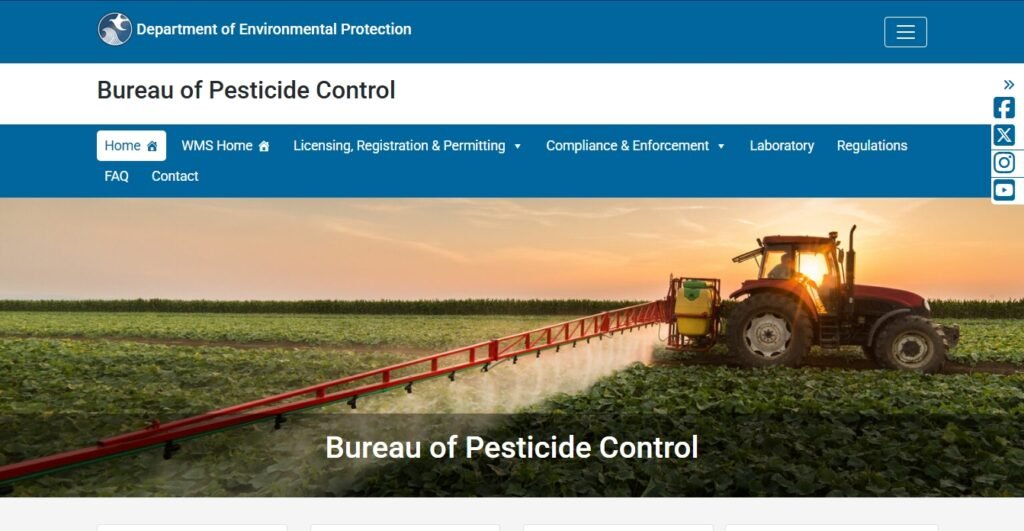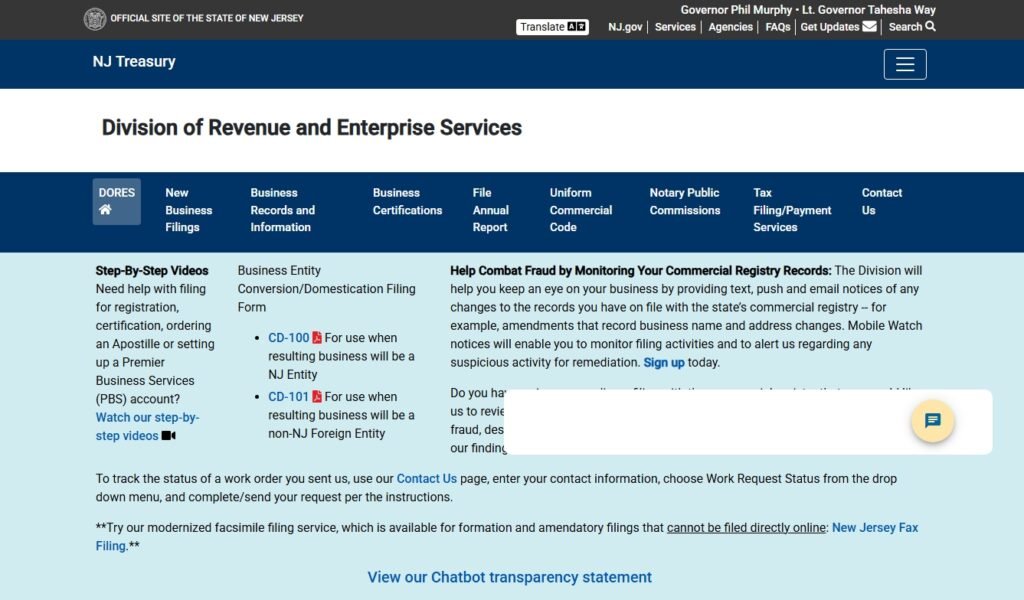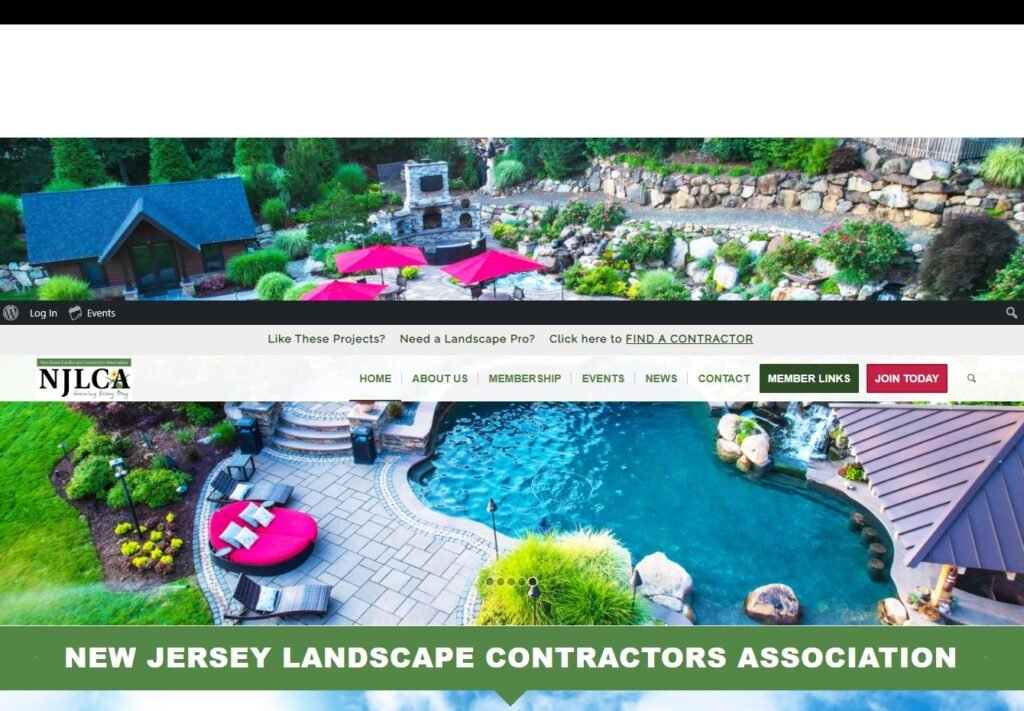Are you an outdoor lover? Do you want to transform your lawn into a well-maintained landscape? If your answer is yes, then Congratulations! You can start your landscaping business in New Jersey!
But before you start operating your lawnmower and designing your garden beds, there’s a legal side of the things you must know. New Jersey has specific regulations when it comes to landscaping, especially if your business involves services like large-scale projects, constructions, or pesticides.
In this article, we’ll be covering the information regarding licenses, registrations, and permits you must have to legally start your business in New Jersey.
Is a Landscaping License Required in New Jersey?
New Jersey does not require general landscaping licenses, as compared with some other states. However, you might require specific licenses and permits based on the services you provide.
For instance:
- You’re supposed to have a license from the New Jersey Department of Environmental Protection (NJDEP) in order to apply pesticides.
- You might require a contractor registration if your projects include hardscaping or construction (beyond a specific budget).
- Before you can advertise your services, local governments may also require business licenses or permits.
Therefore, some services may require a license, but lawn mowing and simple garden maintenance do not.
Landscaping License Requirements in New Jersey
a. Pesticide Applicator License
You must obtain certification from the New Jersey Department of Environmental Protection (NJDEP) if your landscaping business involves the application of pesticides, herbicides, or fertilizers.
Conditions:
- Pass the pesticide applicator exam administered by the NJDEP.
- Get instructions on how to handle pesticides safely.
- Submit an application for a Commercial Applicator (for clients) or Private Applicator (own/farm use) license.
- To stay up to date, renew your license every year and earn continuing education credits.

For more details, you may visit the official website of the New Jersey Department of Environmental Protection.
b. Home Improvement Contractor Registration
If your landscaping work involves hardscaping, patios, decks, retaining walls, fencing, or irrigation, you must register with the New Jersey Division of Consumer Affairs as a Home Improvement Contractor.
This is relevant if you:
- Work on residential buildings.
- Beyond basic lawn care, take on construction and installation projects.
- Possess contracts worth over $500.

More information is available on the New Jersey Division of Consumer Affairs
Other Important Legal Requirements
a. Register Your Business
You must legally register your business before you start operating it.
Here are the steps:
- Select your business structure among corporation, LLC, or sole proprietorship.
- Register with the Division of Revenue and Enterprise Services (DORES) in New Jersey.
- Apply to the IRS for an Employer Identification Number (EIN).
- Get a New Jersey Sales Tax Certificate if you intend to charge sales tax or sell goods.

Keep an eye on your business records by registering it with the New Jersey Division of Revenue and Enterprise Services.
b. Insurance Coverage
Insurance is important to protect your business and earn the trust of your clients. Though not legally required, it is generally suggested to have appropriate insurance for your firm.
Some common types include:
- General Liability Insurance: Property damage or unintentional injuries are covered by general liability insurance.
- Workers’ Compensation: If you have employees, you must have workers’ compensation insurance.
- Commercial Auto Insurance: You should have a Commercial Auto Insurance if you use a truck, trailer, or van in your business.
- Tools and Equipment Insurance: This is the insurance for tools and equipment guards against damage or theft.
- Umbrella Insurance: Umbrella Insurance provides additional protection against significant claims.
In New Jersey, NEXT Insurance, The Hartford, and Hiscox are well-known providers.
c. Local Permits and City Requirements
Numerous New Jersey towns, including Trenton, Jersey City, and Newark, have certain requirements for landscaping licenses. These requirements are:
- Licenses for local businesses.
- Zoning permits for office or yard landscaping.
- Special use permits for large-scale projects.
You should always confirm the key requirements with your county office or city clerk before kickstarting your business.
d. Surety Bond (Optional but Recommended)
A surety bond is not always necessary, but it might show professionalism and help you sign larger contracts. The size of the project and local regulations typically determine the bond amount.
Joining a Landscaping Association in New Jersey
Getting involved in a professional association can help you stay updated with industry trends, build your network, and enhance your skills.
New Jersey Landscape Contractors Association (NJLCA)

The New Jersey Landscape Contractors Association represents the entire Green Industry in New Jersey, such as landscape contractors, landscape architects, sod farmers, nurseries, growers, garden centers, horticulturists, floriculture, and industries serving them.
Benefits of New Jersey Landscape Contractors Association (NJLCA):
- It offers programs for certification and workshops.
- Helps in boosting networking with colleagues in the industry.
- It provides access to resources and recommendations from clients.
Important Things to Remember
- Pesticide License Cost: Around $65–$150, depending on type.
- Home Improvement Contractor Registration Fee: $110 annually.
- Renewals: Most licenses are renewed every 1–2 years.
- Processing Time: Business registration and contractor approvals can take 2–4 weeks.
- Training: Required for pesticide applicators and contractors.
Final Thoughts
Starting a landscaping business in New Jersey can be beneficial, although it has its responsibilities. Every step, from business registration and insurance to acquiring the necessary licenses, guarantees that your business operates legally and boosts customer confidence.
After your paperwork is completed, you can concentrate on what you love most: making New Jersey’s lawns, gardens, and outdoor areas more beautiful and vibrant.
So, prepare to expand your landscaping dream in the Garden State by gathering your tools and finishing the legal checklist!





